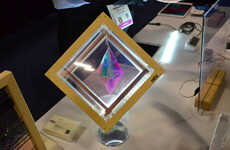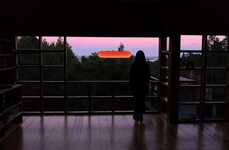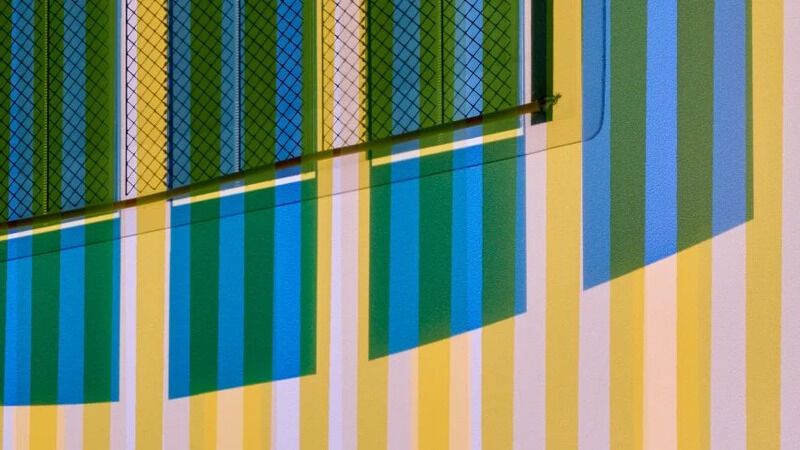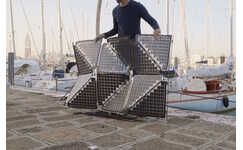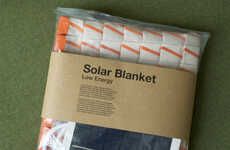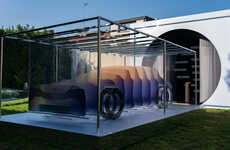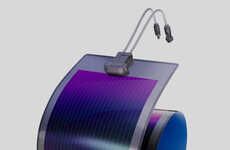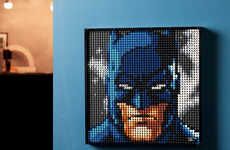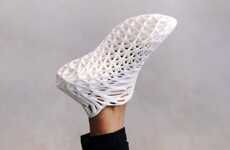
Marjan van Aubel Created a See-Through Solar Tapestry Called Ra
Elena Rahman — January 26, 2022 — Art & Design
References: marjanvanaubel & dezeen
Marjan van Aubel transformed solar panels into a see-through solar tapestry. The Dutch designer arranged strips of colorful photovoltaic cells into a geometric pattern to create the piece dubbed Ra. The artwork is named after the ancient Egyptian sun god.
Ra is less than one millimeter thick and was designed to hang in a window. The goal is to cast vivid shadows on the surrounding walls to catch the light at various times throughout the day. When sunlight is caught in the transparent tapestry, a ring of electroluminescent paper embedded in the solar tapestry begins to glow. The glowing effect is powered by the energy that was captured by the photovoltaic cells throughout the day.
Image Credit: Marjan van Aubel
Ra is less than one millimeter thick and was designed to hang in a window. The goal is to cast vivid shadows on the surrounding walls to catch the light at various times throughout the day. When sunlight is caught in the transparent tapestry, a ring of electroluminescent paper embedded in the solar tapestry begins to glow. The glowing effect is powered by the energy that was captured by the photovoltaic cells throughout the day.
Image Credit: Marjan van Aubel
Trend Themes
1. Solar Art - The trend of incorporating solar panels into art pieces creates new opportunities for renewable energy innovations in design.
2. Translucent Solar Panels - The trend of creating see-through solar panels presents innovative opportunities for architecture and interior design where renewable energy sources can be stylishly incorporated.
3. Electroluminescent Technology - The trend of using electroluminescent technology to power glowing effects in solar art opens up possibilities for energy harvesting in creative applications.
Industry Implications
1. Art - The art industry can capitalize on the trend of incorporating solar panels as a medium for creating eco-friendly and sustainable art pieces.
2. Architecture - The use of translucent solar panels creates disruptive innovation opportunities in the architecture industry to create stylish and functional renewable energy systems.
3. Interior Design - Incorporating see-through solar panels in interior design creates new disruptive innovation opportunities for energy-efficient and aesthetically pleasing designs.
3.4
Score
Popularity
Activity
Freshness



